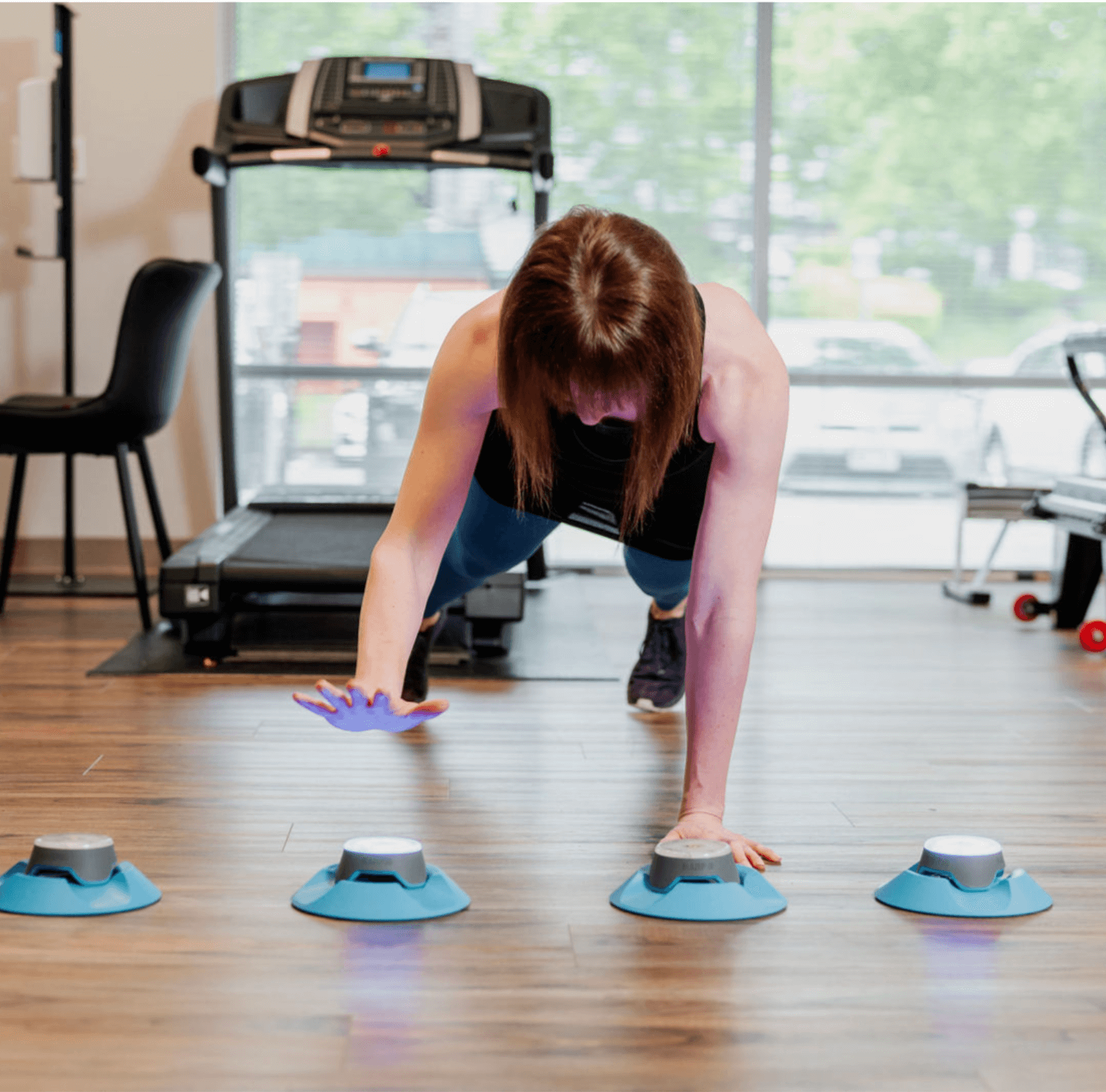Concussion Baseline Testing
Pre-injury testing designed to keep your edge sharp and your comeback strong.
Recover smarter.
Return stronger.
Get a head start on recovery with concussion baseline testing built for athletes. Using research-backed assessments, we measure cognitive skills, balance, and reaction time to create a personalized profile that guides confident recovery decisions.
What We Test
Post-Concussion Symptom Scale (PCSS)
Standardized Assessment of Concussion (SAC)
King-Devick Test (Rapid number naming for eye movement and processing speed)
Balance Error Scoring System (BESS) and Wisconsin Error Scoring System (WESS)
Timed Tandem Gait
Dual Task Gait (Walking combined with a cognitive task)
Reaction Time Measures
Delayed Recall Tests
Defense Automated Neurobehavioral Assessment (DANA)
Postural Sway Assessment (Highmark System)
Testing Options
-
Individual Athletes
One-on-one testing that works with your schedule — personalized, fast, and built to keep you game-ready.

-
For Teams & Schools
Kick off the season with confidence. Our group testing covers 8–10 athletes per hour, making it easy and efficient for entire teams to get protected.

Who Should Get Tested — And When
Baseline testing is most effective when completed before an injury occurs and updated regularly as athletes grow and develop.
-
Testing should begin around age 10 and be repeated annually. Since children and teens are still developing, frequent updates ensure results stay accurate.
-
For athletes playing more than one sport, it’s best to complete testing at the start of each season to provide the clearest benchmark for monitoring.
-
For older athletes, repeating testing every two years provides reliable data for safe return-to-play decisions.
Why Baseline Testing Matters
Concussion baseline testing is more than a formality — it’s a powerful tool to protect athletes and support safe, confident return-to-play decisions.
-
Pre-season data gives clinicians a clear benchmark, allowing them to compare post-injury results and ensure recovery is complete — not just based on symptoms.
-
Returning too soon triples the chance of a second concussion and increases the risk of other injuries. Baseline testing helps prevent rushed comebacks.
-
Athletes with baseline data and structured return-to-play plans recover more safely and often faster, avoiding long-term complications.
-
Consistent, thorough testing closes the door on intentionally underperforming (“sandbagging”), protecting the accuracy of results and the safety of every return-to-play decision.

Invest in Your Longevity
From youth to adults, baseline concussion testing protects performance today and health for years to come.



